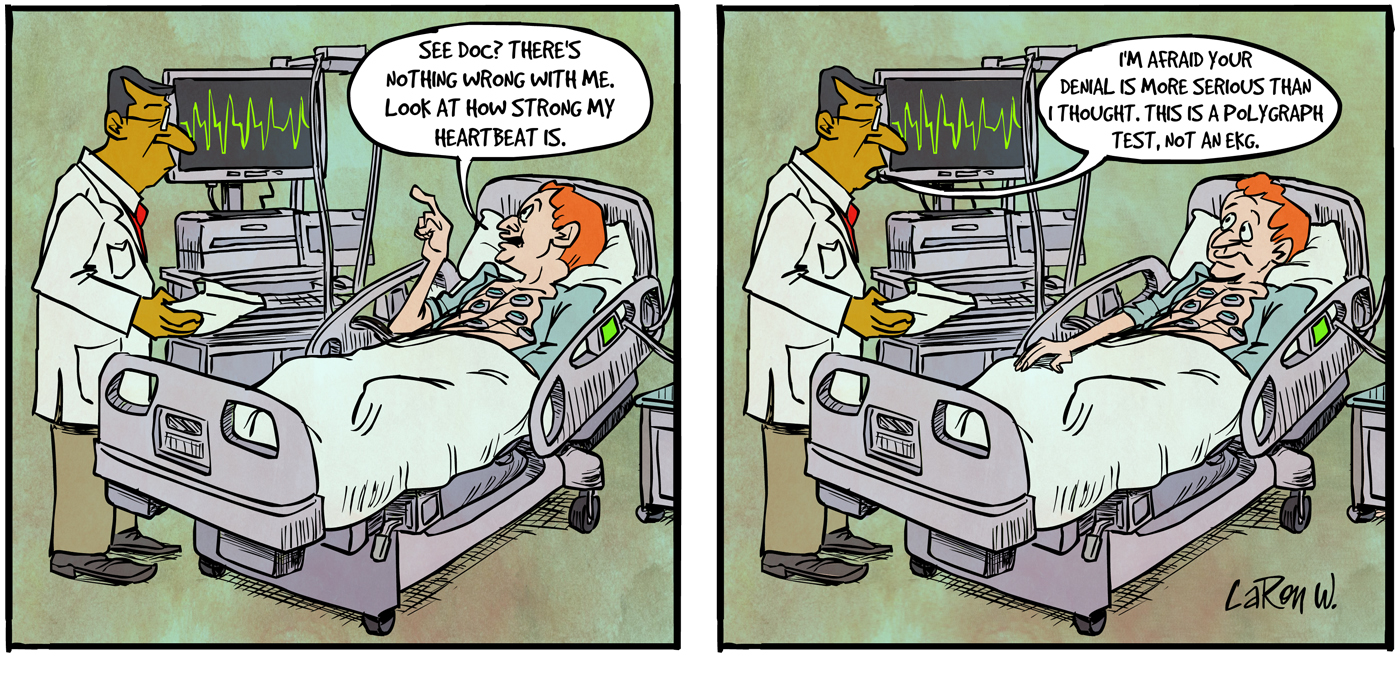Yes, my mother once stabbed me. I was probably 15 years old when it happened. I am now 72. I could never use the word “stab” until I had been sexually sober for many years in SA. Instead I would say that I was a very unruly adolescent, and that one day I got my mother so infuriated that she went to hit me. The closest object she could find to strike me with was a bread knife. In the process of protecting myself from being hit with the knife, I raised my arms, and she accidentally cut me. I had to be taken to a nearby emergency room where I required stitches for the wound. That is how I would relate this story to others anyway.
It took many years in SA before I could be honest enough with myself to relate what really happened. The fact is: my mother stabbed me in my right arm. If I had not raised my arms, I could have been stabbed in the chest. That is what happened.
Why is it important for me to tell myself and others the truth? Because only by speaking the truth could I realize how sick my mother was. Only a very ill mother would have stabbed her own son. Once I realized the truth, my long-term anger toward my mother turned into forgiveness. For a sexaholic like me, anger can turn into resentment, but maintaining anger toward a sick person is very difficult. As I’ve read in the Big Book, “We realized that the people who wronged us were perhaps spiritually sick. Though we did not like their symptoms and the way these disturbed us, they, like ourselves, were sick too. We asked God to help us show them the same tolerance, pity, and patience that we would cheerfully grant a sick friend” (66-67).
I have no other choice than to see that my mother was sick. If I don’t take this approach I will remain angry and resentful, and resentment is lethal to my program. As the Big Book says, “It is plain that a life which includes deep resentment leads only to futility and unhappiness. …We found that it is fatal. For when harboring such feelings we shut ourselves off from the sunlight of the Spirit. The insanity of alcohol returns and we drink again. And with us, to drink is to die” (AA 66).
For 35 years, my mother and I never discussed this incident with each other. If it had not been for the permanent scar on my arm, it might seem that I had never been stabbed, that it was only a bad dream.
In 1988, after being sober for a few years, I attended an SA International Convention in Rochester, NY. I was deeply touched by an S-Anon speaker who described the inner healing journey she had experienced toward her mother. I was so moved by her share that I went straight into the hotel lobby and telephoned my mother. I found myself saying: “Mom, just calling to say I love you.” Her response shocked me. “Harvey, how could you love me after what I did to you when you were younger?” To my surprise the following words came not only out of my mouth but also out of my heart: “Mom, I forgave you a long time ago just as I hope my children will forgive me for any of the problematic things I did to them.”
Even though she stated the event in vague terms, this was the first time my mother had ever alluded to it. This was the best amends she was capable of making to me. She had been holding this pain in silently for decades. This was her gift to me and to herself: to finally bring what she had done to me into the light.
In the White Book section called “Step Eight and One-Half” we read, “We take the action of forgiving, even when we don’t feel forgiving. Most of us never seem to feel forgiving until we take that inner action of giving up our right to resent. Practicing forgiveness in our hearts as we think of these people, then aloud, perhaps even with our sponsor, we forgive every person on our list and keep on forgiving them every time resentment returns. …
“Why forgive? For us it is very simple. If we don’t forgive we’re never free. Unless we forgive, we are not forgiven; we remain chained to our wrongs, unable to free ourselves, leave the dark dungeons of our past, and walk in the sunlight of love.
“If we are to give this aspect of our program its due, we should give it special emphasis: ‘Surrendering our resentments, we asked for willingness to forgive all persons guilty of real or imagined wrongs against us and forgave each one’” (SA 125 and 126).
My mother eventually moved to the city where my family lived. She subsequently had a stroke and became paralyzed in her right arm and leg. I was able to be near her for the last decade of her life. She died in my arms at the age of 89.
If it had not been for my Twelve Step recovery and if I were not sexually sober, I’m sure that the forgiveness process would not have happened. I would have continued to live in hate and resentment toward my mother. I would have missed the joy of my relationship with her. I would never have been free. As it says in our Eleventh Step prayer, “Lord, make me a channel of thy peace—that where there is hatred, I may bring love—that where there is wrong, I may bring the spirit of forgiveness… For it is by self-forgetting that one finds. It is by forgiving that one is forgiven. It is by dying that one awakens to Eternal Life. Amen” (12&12 99).
I am grateful to be able to share with you this wonderful tool of recovery: the tool of forgiveness.
Harvey A., Nashville, TN






